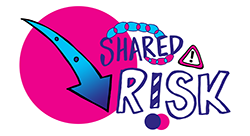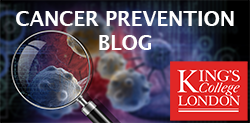Researchers from the Early Cancer Institute, the University of Cambridge and their collaborators are carrying out public health projects to understand the implications of early detection for health, medicine and society:
Principal Investigators: Dr Ignacia Arteaga, University of Cambridge; Dr Jackie Shannon, Knight Cancer Institute, Oregon Health & Science University; Prof Nora Pashayan, UCL, Dr Bella Starling, University of Manchester.
Funded by: ACED Pilot Award 2021
Prof Pashayan and Drs Arteaga, Shannon, and Starling aim to address the uneven rates of participation in cancer research across socio-demographic and protected characteristics by carrying out engagement activities. They will draw together their findings to design a community engagement roadmap for the improved representation of underserved communities in cancer early detection.
You can find out more about the project, and watch a short video that illustrates some key elements of this year-long multidisciplinary research study, at: https://anthced.com/represent
Principal Investigator: Dr Kelly Fagan Robinson, Department of Social Anthropology, University of Cambridge
Funded by: ACED Skills Exchange and Development Travel Awards 2020
Dr Robinson will be addressing communication gaps between Medical Anthropology and Health and Risk Prevention Modelling by broadening the understanding of data in both disciplines. She aims to make the resulted learnings available to the whole ACED community.
Principal Investigator: Dr Juliet Usher-Smith, Department of Public Health and Primary Care
Funded by: Cancer Research UK Cambridge Centre Early Detection Programme Pump Priming Awards 2020
Advancing early cancer detection requires ensuring optimised screening programmes. Stratified screening has been suggested as a means of improving the efficiency of early detection by better targeting screening tests. Moving to an approach in which screening varies according to individuals’ risk as opposed to broad population selection, however, has important social and ethical implications that have largely not been considered in previous research.
In line with a key focus of the programme to understand the implications of early detection for society as a whole, this project will explore the social and ethical implications of risk stratified screening. Using two methods not previously applied in this field we will elicit views from both a societal and individual perspective on the most acceptable strategies for introducing risk stratification into both existing and new screening programmes.
Building on research led by Usher-Smith, Stewart and Griffin from The Primary Care Unit and Department of Surgery, this project is also developing new multidisciplinary collaborations with experts in ethics (John, Department of History and Philosophy of Science), Health Economics (Morris, Department of Public Health and Primary Care) and policy (Moorthie, the PHG Foundation) that will enable future externally funded research in this area.
Principal Investigator: Dr Maryon McDonald, Department of Social Anthropology, Cambridge
Co- Investigator: Dr Ignacia Arteaga, Department of Social Anthropology, Cambridge
Research Associate: Dr Kelly Fagan Robinson, Department of Social Anthropology, Cambridge
Funded by: Cancer Research UK Cambridge Centre Early Detection Programme Pump Priming Awards 2019
The promise of early cancer detection is underpinned by three key ideas: cancer is more treatable if diagnosed early; technologies can determine cancer risk in the population; and people are interested in engaging with practices of cancer detection. However, the current picture of cancer prevention suggests that over a third of the eligible population in England do not engage in cancer risk detection measures such as population screening programmes.
Colleagues in health research have shown some of the factors influencing the lack of participation in early cancer detection through screening programmes. However, uncertainty remains due to the challenge of reaching people who do not engage with health services as they often seem reluctant to participate in research that explores the reasons behind their non-engagement.
This project sought to lay the ground for a better understanding of why some people seem not to want to tackle the potentiality of cancer in their lives. It was done through a series of public engagement activities in the community.
Find out more about the project on the website: https://anthced.com/elusive-risks/
You can also watch videos from the Elusive Risks Roundtable, and see a sample of images from the Images of Care and Risk exhibition.
Published commentary: Covid-19 test and trace: Look for the super-locals to access “hard to reach” groups. BMJ, September 2020.
'Shared Risk' eLearning Course
As part of the Elusive Risks project, Dr Kelly Fagan Robinson successfully applied for an ACED Skills Exchange and Development Award which saw her collaborating with anthropologists from Cambridge, and epidemiologists and risk prediction modellers from the University of Manchester. Kelly soon realised that this diverse group of researchers had a different understanding of the word “risk” – essentially they were speaking different languages.
The findings of this project have been made into a short online course which aims to demystify risk evidence sharing.
Find out more about Kelly's story: Understanding is in the mind of the beholder - communicating cancer risk across different audiences
Listen to our podcast to hear more about Kelly’s story at: https://soundcloud.com/crukcamcentre/risk-communicating-across-disciplines
Principal Investigator: Dr Alexandra Freeman, Winton Centre for Risk & Evidence Communication, DPMMS
Co- Investigator: Dr Gabriel Recchia, Winton Centre for Risk & Evidence Communication, DPMMS
Funded by: Cancer Research UK Cambridge Centre Early Detection Programme Pump Priming Awards 2019
One of the great problems of early cancer detection is how to detect (and hence treat) only the cancers that would go on to be symptomatic and not over-diagnose. Risk stratification - identifying people who have a higher than average risk of developing a symptomatic cancer – is at the moment the best way to minimise this and is currently (and increasingly) being done through genetic/genomic testing. It is vital that the results of genetic testing are acted on appropriately. Patients need to understand exactly what such test results do and do not mean, and what their options are in the face of them.
With increased testing for cancer-related gene variants such as BRCA as part of cancer risk stratification it is vital that the science of communicating the findings keeps pace with the science of identifying the findings. Without understanding their results, patients (and their clinicians) are unable to make informed healthcare choices. The aim of this project is to identify numbers, words and graphics that can be used to help patients understand their cancer risk and medical options on receiving a BRCA gene test result (either positive or negative). To do this, we will be building on our previous work to develop standardised genetic report forms to communicate carrier testing results, and using both qualitative and quantitative methods.
Principal investigator: Dr Kathy Liddell & Dr John Liddicoat, Faculty of Law
Funded by: Cancer Research UK Cambridge Centre Early Detection Programme
This project is an empirical study of the practical effect of the 2012 US Supreme Court decision Mayo Collaborative Services v Prometheus Laboratories on the translation of biomarkers for the early detection of cancer. Broadly speaking, the Supreme Court ruled that merely applying medical correlations using well-established techniques are unpatentable in the US.
The Court’s primary reason was that working out a patient’s medical condition based on a medical correlation was akin to patenting a law of nature and, therefore, not a patentable invention. The decision also introduced a significant divergence between US and European patent law. Commentators speculate that the decision has substantially reduced the degree to which the diagnostics industry can rely on patent protection in the US to recoup R&D costs; and that since the US is the most important market for the diagnostics industry, the decision is having a significant negative global effect on diagnostic innovation. Opposing these views, other commentators argue the decision benefits the patent system by weeding out overly broad patents. The project will investigate this conjecture and, thereby, provide much-needed evidence on the impact of the case in both the US and Europe.
Principal Investigator: Dr Stephen John, Department of History and Philosophy of Science
Funded by: CRUK Cambridge Centre Early Detection Programme "implications for health, medicine and society arising from the early detection of cancer" awards 2017
This project will develop a framework for resolving the ethical and epistemological challenges raised by early detection. Specifically, it considers three issues: how we should define and measure "overdiagnosis"; how population-level data about cancer risk can be communicated to individuals in ways which allow them to make informed decisions; and how traditional norms of medical practice, such as "do no harm" can be operationalised in the assessment of screening programmes. Resolving these philosophically thorny problems is fundamental to constructing ethical, and hence publicly acceptable, early detection programmes.
Principal Investigator: Dr Maryon McDonald, Department of Social Anthropology
Co-Investigator: Samuel Murison
Funded by: CRUK Cambridge Centre Early Detection Programme "implications for health, medicine and society arising from the early detection of cancer" awards 2017
This project will take stock of previous studies and begin to outline a broader and novel remit for understanding the social realities of screening. It has long been feared that ever more sophisticated diagnostic technologies, together with what can seem to be earlier definitions of pathology, may save lives - but might also encourage diagnosis creep. Early detection programmes can mean that more and more people are recruited into the category of ‘patients’, and the effects can be life-saving or deleterious. The Early Detection of Cancer Programme is very much aware that its activities have ‘broader implications’. This project will seek to flesh out some of these implications by placing other vital aspects of the activities and the people concerned - their everyday worlds, their experiences of the programme, the gains and the costs in their lives - back into the picture. The social realities involved are not limited to a downstream category of ‘psycho-social effects’. Understanding the social realities of early detection means also paying attention to just what is being detected and how, the demands placed on all those involved at every stage of the process, the relations and modes of personhood brought into being, and the social worlds that are implicated and enacted.


